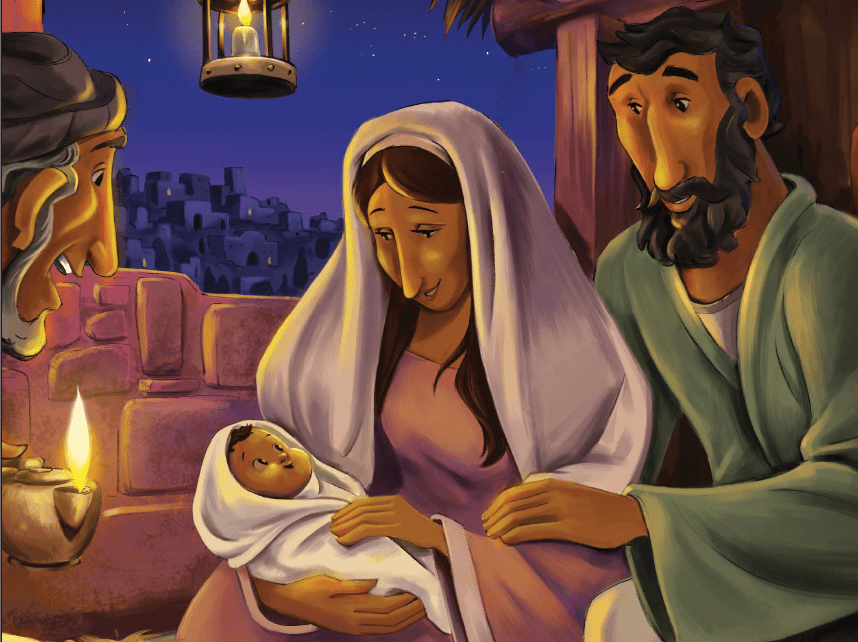Unit 11, Session 2

Dear families,
In 1 Samuel 24, we see the tension between Saul and David come to a head, as David turns down an opportunity to rid himself of King Saul once and for all. We see David’s heart for the Lord as he chose to pursue obedience over safety. David’s mercy in this story gives us a glimpse of Christ’s incredible mercy toward sinners who place their faith in His name.
Why did David spare Saul’s life? How do we see an even greater pardon for sin in the lives of Christ followers?
Back in chapter 18, Saul had grown jealous of of David’s popularity after his many victories in battle. By chapter 24, Saul had attempted to kill David multiple times and refused to give up the fight. In fact, he brought 3,000 men on a mission to search for David in the wilderness of En-gedi. David soon found himself in a cave with his own men, who tempted him to kill the vengeful King Saul.
Yet, David knew what the Lord called him to do (1 Samuel 24:6). He extended honor to Saul, though he did not deserve such mercy. David even swore to never harm his king, an oath that would continue to be tested as Saul would go back on his word to preserve the life of his young successor.
David trusted God to deliver him from Saul and refused to take matters into his own hands, believing God’s word would come to pass and that David would become king in God’s perfect timing. David’s willingness to grant mercy came from his trust in God’s perfect justice and righteousness (v. 15). Rather than seeking vengeance, David extended mercy, recognizing God alone would enact judgment on Saul’s sin.
In an even greater act of mercy, Christ died for sinners. He prayed for forgiveness for those who nailed Him to the cross, and He took the judgment for our sin. The mercy of God is available to all who place their faith in Jesus Christ (Ephesians 2:4-5). Lead the children in your care to see the immeasurable gift of Christ’s mercy, that they, too, might experience forgiveness of sins and new life in Christ Jesus.
Check out The Gospel Project At Home for resources designed to help you lead a family worship experience as well as suggestions for morning and evening prayer times and family activities.
FAMILY TALKING POINTS
CHRIST CONNECTION
This is the big idea of how this week’s Bible story points to Jesus.
- Babies & Toddlers: David was kind and showed mercy to Saul. God was kind and showed us mercy by sending Jesus to rescue us from sin and death.
- Younger Preschool: Saul wanted to be mean to David, but David was kind and showed mercy to Saul. Our sin makes us God’s enemies, but He showed us mercy by sending Jesus to rescue us from sin and death.
- Older Preschool: Saul wanted to hurt David, but David showed mercy to Saul. We all deserve to die for our sin, but God shows us mercy when we trust in Jesus, who died for our sin and rose again.
- Kids: Saul was trying to kill David, but David chose to show Saul mercy. When the people were killing Jesus, He showed them mercy and said, “Father, forgive them.” We all sin, but God shows us mercy through Jesus, who died for our sin and rose again.
BIG PICTURE QUESTION & ANSWER
This is an important biblical truth that your child will encounter each week of this unit.
- Younger Preschool: Is anything greater than God? No, God is greater than everything.
- Older Preschool: Is anything greater than God? No, God is greater than everything.
- Kids: Is anything or anyone greater than God? No, God is greater than everything and everyone.
KEY PASSAGE
This is a Bible verse that relates to what your child will encounter each week of this unit.
- Babies & Toddlers: LORD, no one is like you. You are great. Jeremiah 10:6
- Younger Preschool: LORD, there is no one like you. You are great. Jeremiah 10:6
- Older Preschool: LORD, there is no one like you. You are great; your name is great in power. Jeremiah 10:6
- Kids: LORD, there is no one like you. You are great; your name is great in power. Who should not fear you, King of the nations? It is what you deserve. Jeremiah 10:6-7a
** Next week: Elijah Confronted Ahab (1 Kings 18-19)








